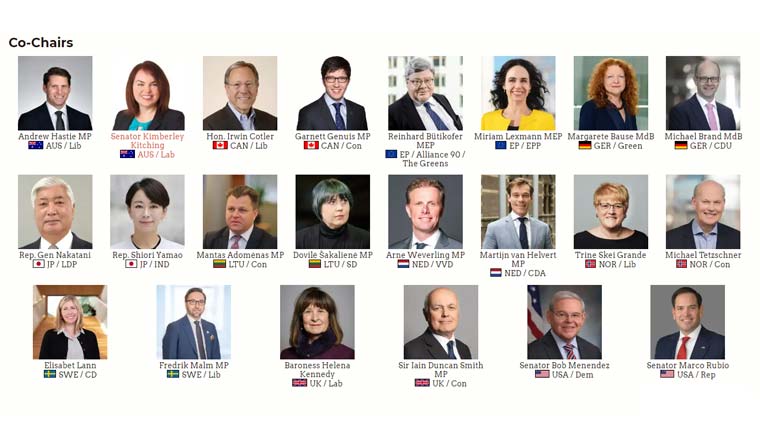On Friday, lawmakers from eight democratic countries banded together to form the Inter-Parliamentary Alliance on China (IPAC), a grouping that aims to “reform the approach of democratic countries to China”.
The members include lawmakers from Australia, Canada, the European Parliament, Germany, Japan, Lithuania, the Netherlands, Norway, Sweden, the United Kingdom and the United States.
Florida Senator Marco Rubio is among the two US co-chairs at IPAC, the other being Senator Bob Menendez. Japan is represented by its former defence minister General Nakatani, while the United Kingdom has Iain Duncan Smith.
In a statement posted on Twitter, Rubio says that China under the rule of the Chinese Communist Party represents a global challenge. “What we once believed about China’s rise no longer corresponds to reality,” says Representative Shiori Yamao from Japan.
Today we launch #IPAC#standtogether pic.twitter.com/bt19tb3bVB
— Inter-Parliamentary Alliance on China (@ipacglobal) June 4, 2020
“When countries have stood up for democratic values and human rights, they have done so alone, Sometimes at great cost,” says Australian MP Andrew Hastie.
Baroness Helena Kennedy said, “By standing together, we will be able to keep the rules-based and human-rights systems true to their founding purposes”.
According to the group statement, its members subscribe to the following principles:
“Democratic states must maintain the integrity of their political systems, and actively seek to preserve a marketplace of ideas free from distortion.”
“A free, open, and rules-based international order that supports human dignity is created and maintained through intention. The persistence of such an order requires like-minded countries to participate actively in its governance and enforcement.”
The IPAC website says the grouping will safeguard international rules-based order, upholding human rights, promoting trade fairness, strengthen security and protect national integrity.
The formation of the alliances comes as countries like Australia and the United States increasingly call for a stronger global response to China, which is viewed as having covered up the initial spread of COVID-19 and thereby endangering the world by not being transparent.
An editorial in China’s state-run media outlet Global Times derided the effort as a ‘farce’, saying Chinese netizens and observers say it is an attempt to “seek attention and create an anti-China climate among the people of the West.”
The nations these lawmakers come from have increasingly seen fraught relations with China. Australia has led calls for an independent probe into China’s role in spreading COVID-19, while Sweden has seen relations with China on a steady decline since 2015, when a Swedish author was kidnapped in Thailand and later revealed to have been detained in China. Canada is in the middle of diplomatic face-off with China after Huawei’s Chief Financial Officer was arrested in Vancouver, prompting China to detain two Canadian citizens, Michael Kovrig and Michael Spavor, in retaliation.
The United States under President Donald Trump has engaged in a long-running and wide-spanning trade war with China over the last few years, accusing the country of “unfair trade practices”.


